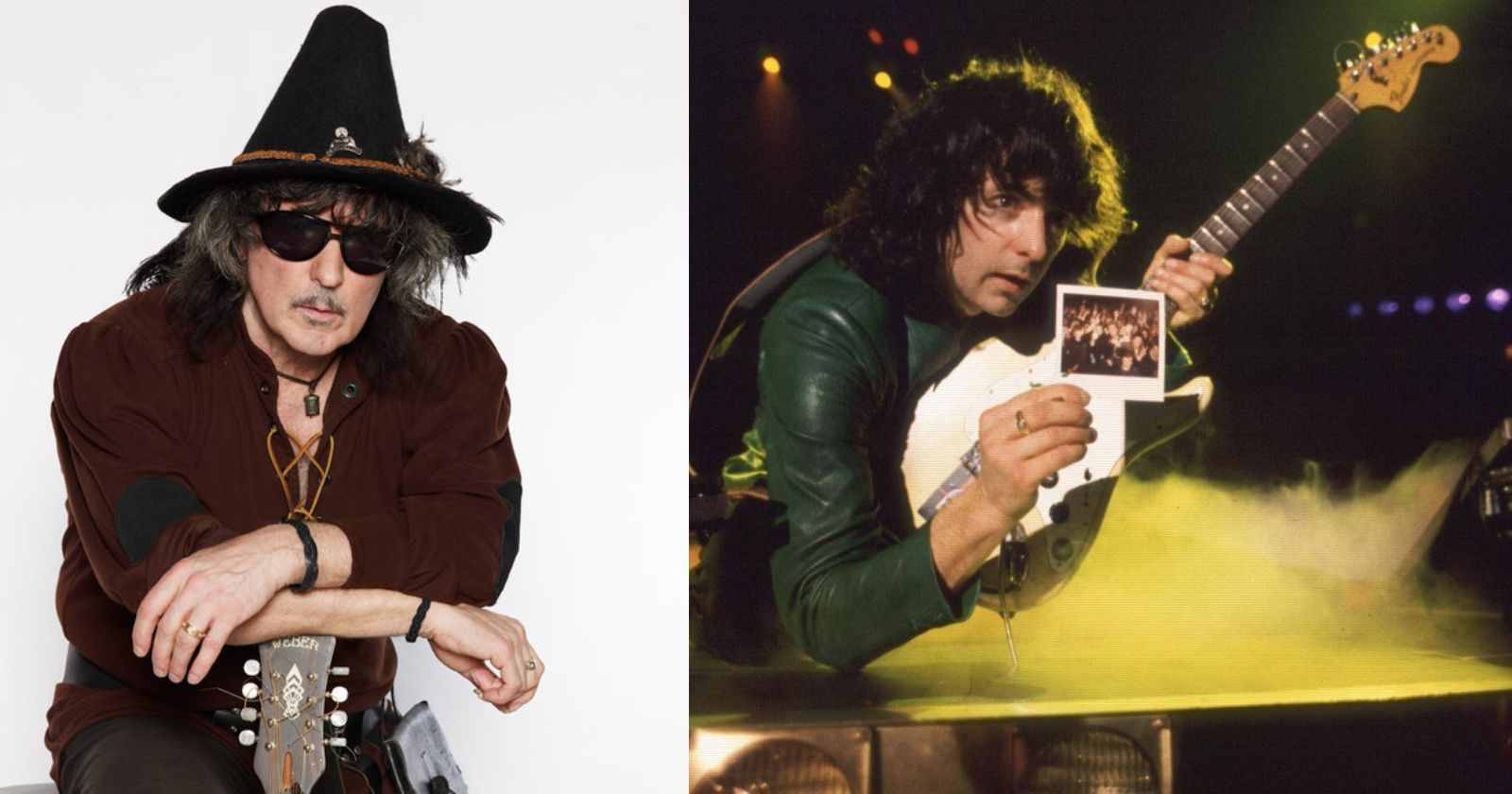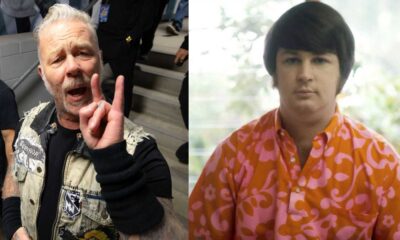ARTICLES
The guitarist that Ritchie Blackmore said impressed him in the 80s
The legendary guitarist Ritchie Blackmore started his career in the early 60s, achieving fame by the end of that decade as a member of Deep Purple. He was a crucial part of their sound and helped them to become one of the best-selling bands of all time with an estimated amount of more than 100 million records sold worldwide.
His successful career continued after he decided to leave the band in 1975 and formed his own group Rainbow, which had in the first albums Ronnie James Dio on the vocals. In 1984, Deep Purple’s classic line-up reunited and Blackmore and recorded new praised albums. To promote those records Blackmore talked a lot with the press about the music business at the time. He even mentioned one guitarist from that decade that impressed him.
The guitarist that Ritchie Blackmore said impressed him in the 80s
In the 80s, Deep Purple released two studio albums with the classic line-up that had Ritchie Blackmore (Guitar), Ian Gillan (Vocals), Ian Paice (Drums), Roger Glover (Bass) and Jon Lord (Keyboards). Those albums were “Perfect Strangers” (1984) and “The House of Blue Light” (1987). They had mixed reviews but are now an important part of their discography.
Compared to the early 70s when Purple really became a massive group in terms of success, the 80s was a time when Hard Rock had already evolved. There were countless bands that were pushing things to a new level. Besides being one of the most influential guitarists of all time, Ritchie Blackmore is also known for being a very sincere person. So he always says what he thinks about anything.
In a interview with Metal Hammer in 1987, Blackmore talked about a new wave of Rock and Roll guitarists. He mentioned the American musician Steve Vai saying that he was impressed by him. At the time he was was a member of David Lee Roth’s group. But had already worked with Frank Zappa and Alcatrazz.
“The latest trend (of guitarists) seems to be how fast you can get from A to B without actually playing anything, It’s good, but I find it leaves me cold. Okay, you can hear that the guy has practised, but what’s he feeling? A lot of people are out to impress.”
He continued:
“But the guy that sticks out at the moment is Steve Vai. He’s really shit-hot. Not only can he play every style there is, he can write and transpose the whole thing as well. He can play the very fast licks, or he’ll just play it another way. Amazing,” Ritchie Blackmore said.
After leaving Roth’s band Vai still worked with Whitesnake before focusing more on his solo career after he released his second studio album “Passion and Warfare” in 1990.
Steve Vai have always been a huge Ritchie Blackmore fan
Born in Carle Place, New York back in 1960, Steve Vai was just a young kid when Deep Purple released their successful albums of the early 70s. They were a huge influence to him and he was really impressed when he heard the band for the first time. Especially because of the guitar playing.
“The moment I heard Deep Purple and that guitar. For me, in the very beginning, before it was Deep Purple, it was Led Zeppelin because that’s what I was exposed to. Then the world opened up. I remember when I went out and got Machine Head (’72) and Who Do We Think We Are (’73).”
“What an album, oh my God! To have a record like that and to have a guitar player like Ritchie in your radar and your field. It was just the greatest. You just think, ‘What would my life have been like without that?'” Steve Vai said in an interview reported by Brave Words.
In a conversation for the 2015 documentary The Ritchie Blackmore Story, Vai praised him one more time. He said: “(His talent) It’s like a sword. Like a clean and sharp sword that weighs a real lot, you know. His precision when he plays is stunning”.
Steve Vai was sad after Blackmore decided to leave Deep Purple

After being a member of Deep Purple for seven years and being part of classic albums like “Deep Purple In Rock” (1970), “Machine Head” (1972) and “Burn” (1974), Blackmore decided to leave the band.
At time, Vai was still a teenager and was learning how to play the guitar. In an interview with My Planet Rocks in 2022 he recalled that he was really sad after he saw that the guitarist left the group at the time.
“Well, when I was a kid, I was a huge Deep Purple fan. I was so bummed when Ritchie Blackmore left the band. When those guys left and they weren’t in the band anymore. And they got this new guy, this new bass player (Glenn Hughes), and singer – David Coverdale. I just thought, ‘You don’t like him immediately,’ because he’s not your hero.”
He continued:
“But then I bought that record (‘Burn’), and my God, I was stunned. He was such a great singer. He was inching up on number one. When I saw, I think it was the Us Festival, where David was really singing. I just became a fan. (I) was a fan of the Coverdale Deep Purple for all those records,” Steve Vai said.
Curiously, Steve Vai worked with an ex-Deep Purple in Whitesnake, which is David Coverdale. The singer replaced Ian Gillan from 1973 until 1976, recording the albums “Burn” (1974), “Stormbringer” (1974) and “Come Taste the Band” (1975). Later on he formed Whitesnake, band that Vai was a member for only one year. He was with them from 1989 to 1990, recording the album “Slip Of The Tongue” (1989).
Another indirect “connection” of Vai with Purple is the guitarist Joe Satriani, who was his guitar teacher when he was a teenager. Satriani started his solo career in the 80s and had the chance to collaborate with many famous artists. He even was a member of Deep Purple in the 90s from 1993 to 1994. He joined them after Blackmore had left the group for the last time.










